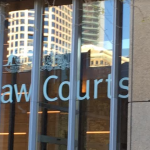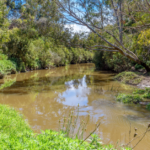The ‘Other Talk’ We Need to Have with Our Kids

Many of us remember the awkward moment when we sat down for the first time—with our parents or children— to talk about the birds and the bees.
The Australian Drug Foundation says there’s an even more important talk we need to be having with children. The ‘other talk’ about drugs and alcohol.
The Other Talk is an initiative that aims to help Australian families talk openly about alcohol and other drugs to prepare children to deal with teenage parties.
There has been recent media focus on the loss of many bright young lives as a result of taking drugs at music festivals. Any action that equips young people with skills they can use to navigate peer pressure, health and safety concerns is something Australians should be taking seriously.
Late last year, the National Policy Manager at the Australian Drug Foundation, Geoff Munro, delivered a series of forums to parents in regional NSW. These forums were designed for parents to learn the best ways to have tough conversations with children who are likely to be exposed to drugs like crystal methamphetamine (commonly known as ‘ice’) that are affecting country communities.
Mr Munro walks parents through a range of uncomfortable scenarios to help them feel better about knowing what to do and say when their children need guidance. He says parents need to know what to do if they find drugs or paraphernalia in their child’s room, how to bring up the conversation around drugs, and what signs they should look for if they suspect drug use.
What to Talk About
Every child is different and parents are experts when it comes to their own children, but there are some things all kids need to learn when it comes to drugs and alcohol. It is important to realise your child is already developing attitudes towards drugs and alcohol from the media and their friends.
Before having the ‘other talk’, you should clarify your own thoughts and feelings on drugs and alcohol. There is a Know Your Facts section on the ‘The Other Talk’ website which may be helpful if you feel you don’t know enough about the subject to sound credible.
Talk with your child about your views on drugs and alcohol and use facts to support your statements. While it’s tempting, you should never exaggerate the harms of drugs and alcohol when talking to kids because they are likely to dismiss your advice once they learn the truth elsewhere.
Be prepared for your child’s questions and ask them about their own views. Talk to them about situations where their friends might be using alcohol or other drugs and how they can avoid taking part without feeling embarrassed.
Have an open and honest discussion, but remember you are the parent, not their friend. Set clear expectations and consequences for breaking the rules.
Starting the Conversation
The Australian Drug Federation recommends you keep the ‘other talk’ as relaxed as possible. Listen out for relevant topics on the TV or radio and use these opportunities to raise the conversation.
Try to have the talk in a comfortable environment. Keep an eye on how your child is responding. You can return to the subject later if you think they are uncomfortable.
At What Age?
Starting the conversation early allows you to create an understanding about alcohol and other drugs and opens up communication lines between you and your child. This means they may feel more comfortable coming to you when their experiences with drugs get more difficult in their teenage years.
The Australian Drug Federation says you could start talking to your child as early as eight years to make sure they have the right information and attitudes when they reach high school.
Drug Slang
Don’t know your bennies from your blow? Are you prepared for when your kid turns around and asks about the effects of using glass?
Drug slang is difficult to understand and always evolving, so the Australian Drug Foundation developed a helpful and completely confidential text service SMS service that can help you stay up-to-date and have a more informed conversation with your kids.
You can text a drug name you don’t know and receive a text message back that contains reliable information about the effects of the drug, further information, and where to get help. For example, if you text the word ‘pot’ to 0439 TELL ME (0439 835 563). You’ll receive this SMS:
Cannabis Depressant Feel relaxed Affects coordination & motivation Heavy longterm use linked 2 memory loss & mental health probs druginfo.adf.org.au 1800888236
Standard network rates apply to text the 0439 TELL ME number, but the messages you receive back are free.
The service picks up certain key words to assist people if they are in serious trouble. It recognises words like ‘help’ and advises people to call triple zero (000) in an emergency, or connects them with local treatment services.






